by Anders Wallace
 On Monday, April 23rd, a 25-year old man named Alek Minassian drove a rented van down a sidewalk in Toronto, killing eight women and two men. The attack was reminiscent of recent Islamist terror attacks in New York, London, Stockholm, Nice, and Berlin. Just before his massacre, he posted a note on Facebook announcing: “Private (Recruit) Minassian Infantry 00010, wishing to speak to Sgt 4chan please. C23249161, the Incel Rebellion has already begun! We will overthrow all the Chads and Stacys! All hail the Supreme Gentleman Elliot Rodger!” The phrase paid homage to a young man named Elliot Rodger. In 2014, Rodger shot and killed six people in Isla Vista, California, before taking his own life.
On Monday, April 23rd, a 25-year old man named Alek Minassian drove a rented van down a sidewalk in Toronto, killing eight women and two men. The attack was reminiscent of recent Islamist terror attacks in New York, London, Stockholm, Nice, and Berlin. Just before his massacre, he posted a note on Facebook announcing: “Private (Recruit) Minassian Infantry 00010, wishing to speak to Sgt 4chan please. C23249161, the Incel Rebellion has already begun! We will overthrow all the Chads and Stacys! All hail the Supreme Gentleman Elliot Rodger!” The phrase paid homage to a young man named Elliot Rodger. In 2014, Rodger shot and killed six people in Isla Vista, California, before taking his own life.
Minassian and Rodger were members of an online subculture called “incels.” Like a 21st Century American psycho Norman Bates, they killed women because they felt sexually rejected by them. Incels are a particularly vicious subculture of the manosphere. The manosphere is a digital ecosystem of blogs, podcasts, online forums, and hidden groups on sites like Facebook and Tumblr. Here you’ll find a motley crew of men’s rights activists, white supremacists, conspiracy theorists, angry divorcees, disgruntled dads, male victims of abuse, self-improvement junkies, bodybuilders, bored gamers, alt-righters, pickup artists, and alienated teenagers. What they share is a vicious response to feminists (often dubbed “feminazis”) and so-called “social justice warriors.” They blame their anger on identity politics, affirmative action, and the neoliberal state, which they perceive are compromising equality and oppressing their own free speech. Their heated resentment warps postmodern (post-1960s) countercultural beliefs currently in vogue among alt-right provocateurs like Milo Yiannopoulos and Alex Jones: specifically, that Americans need to liberate their consciousness from lies and falsehoods borne out by corporate manipulation, government conspiracies, and politically-correct social norms.
Very few people would become so inflamed by the perception of sexual rejection that they would wantonly kill strangers. But sexual abuse, rape, and other types of gendered coercion are rampant in U.S. society. The recent #MeToo movement has shown a spotlight on these men, though mostly only the very rich and successful ones. Behind computers and in bedrooms across the nation, hundreds of thousands of men nurse a seething sense of anger, shame, and resentment coupled with entitlement and stifled desire. Some of these men choose not to kill or rape (though they may, from the privacy of their skulls, want to do both those things). These men are trying to fix their dating lives through masculine kinds of self-help. These are men’s pickup, dating, and seduction communities. Read more »


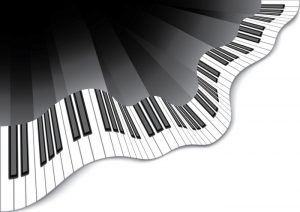 It’s with a certain pleasure that I can recall the exact moment I was seduced by the musical avant-garde. It was in the fourth grade, in a public elementary school somewhere in New Jersey. Our music teacher, Mrs. Jones, would visit the classroom several times a week, accompanied by an ancient record player and a stack of LPs. You could always tell when she was coming down the hall because the wheels of the cart had a particularly squeak-squeak-wheeze pattern. However, such a Cageian sensibility was not the occasion of my epiphany. I’m also not sure if fourth-graders are allowed to have epiphanies, or, which is likelier, if they are not having them on a daily basis.
It’s with a certain pleasure that I can recall the exact moment I was seduced by the musical avant-garde. It was in the fourth grade, in a public elementary school somewhere in New Jersey. Our music teacher, Mrs. Jones, would visit the classroom several times a week, accompanied by an ancient record player and a stack of LPs. You could always tell when she was coming down the hall because the wheels of the cart had a particularly squeak-squeak-wheeze pattern. However, such a Cageian sensibility was not the occasion of my epiphany. I’m also not sure if fourth-graders are allowed to have epiphanies, or, which is likelier, if they are not having them on a daily basis.
 If by “objectivity” we mean “wholly lacking personal biases”, in wine tasting, this idea can be ruled out. There are too many individual differences among wine tasters, regardless of how much expertise they have acquired, to aspire to this kind of objectivity. But traditional aesthetics has employed a related concept which does seem attainable—an attitude of disinterestedness, which provides much of what we want from objectivity. We can’t eliminate differences among tasters that arise from biology or life history, but we can minimize the influence of personal motives and desires that might distort the tasting experience.
If by “objectivity” we mean “wholly lacking personal biases”, in wine tasting, this idea can be ruled out. There are too many individual differences among wine tasters, regardless of how much expertise they have acquired, to aspire to this kind of objectivity. But traditional aesthetics has employed a related concept which does seem attainable—an attitude of disinterestedness, which provides much of what we want from objectivity. We can’t eliminate differences among tasters that arise from biology or life history, but we can minimize the influence of personal motives and desires that might distort the tasting experience.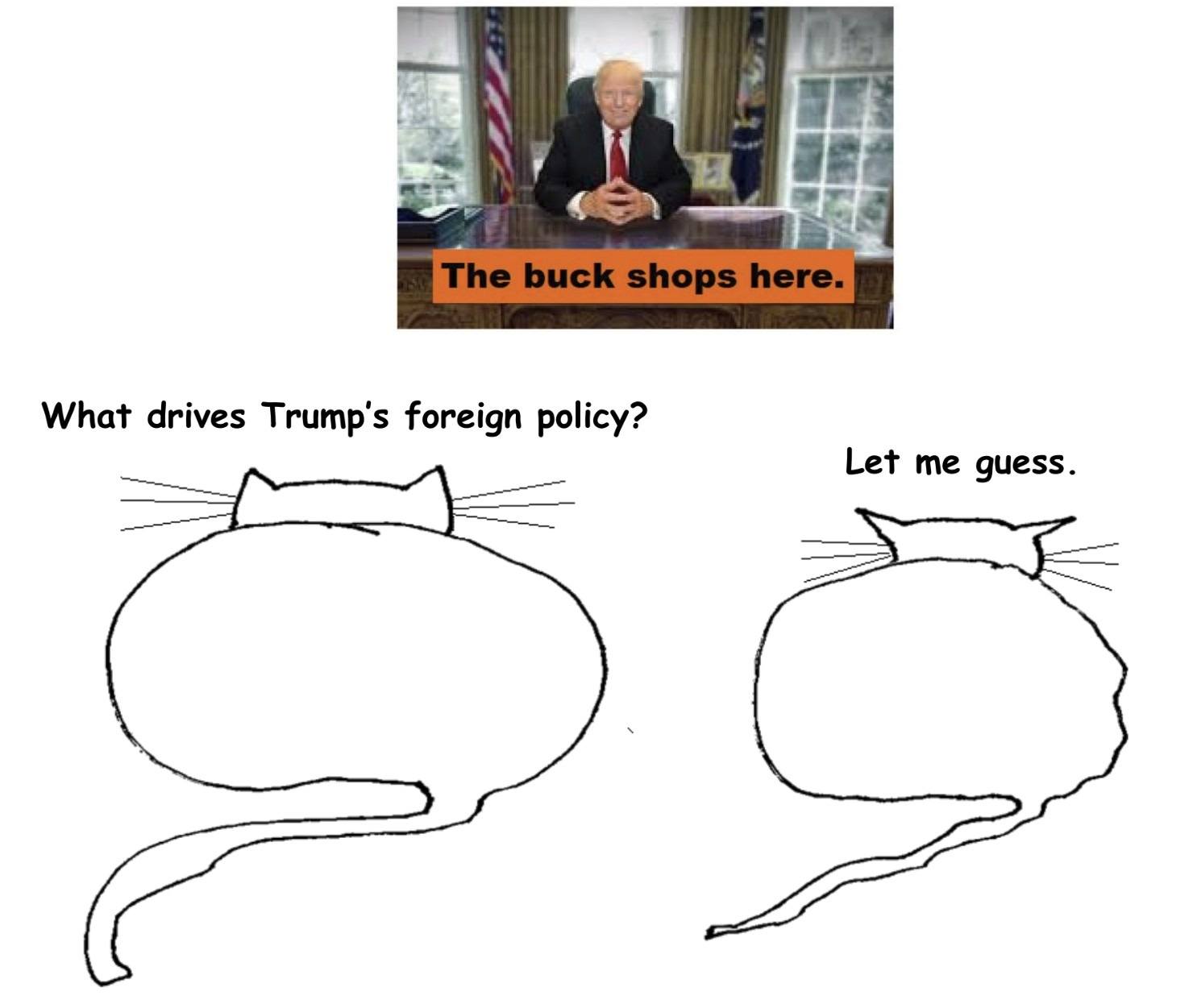

 This last month or so I’ve been desperately trying to get the 2000s chapter fit for human consumption. I’ve
This last month or so I’ve been desperately trying to get the 2000s chapter fit for human consumption. I’ve 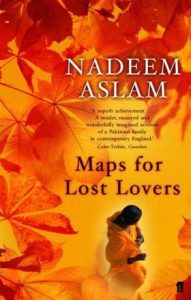
 The fact that anything happens securely on the web should be mind-boggling. In some ways, the internet is like a group of people shouting at each other across an open field. How can you hold a secret conversation when anyone might be listening? How do you prevent imposters, when you can’t always see the face behind the shout?
The fact that anything happens securely on the web should be mind-boggling. In some ways, the internet is like a group of people shouting at each other across an open field. How can you hold a secret conversation when anyone might be listening? How do you prevent imposters, when you can’t always see the face behind the shout? On Monday, April 23rd, a 25-year old man named Alek Minassian drove a rented van down a sidewalk in Toronto, killing eight women and two men. The attack was reminiscent of recent Islamist terror attacks in New York, London, Stockholm, Nice, and Berlin. Just before his massacre, he posted a note on Facebook announcing: “Private (Recruit) Minassian Infantry 00010, wishing to speak to Sgt 4chan please. C23249161, the Incel Rebellion has already begun! We will overthrow all the Chads and Stacys! All hail the Supreme Gentleman Elliot Rodger!” The phrase paid homage to a young man named Elliot Rodger. In 2014, Rodger shot and killed six people in Isla Vista, California, before taking his own life.
On Monday, April 23rd, a 25-year old man named Alek Minassian drove a rented van down a sidewalk in Toronto, killing eight women and two men. The attack was reminiscent of recent Islamist terror attacks in New York, London, Stockholm, Nice, and Berlin. Just before his massacre, he posted a note on Facebook announcing: “Private (Recruit) Minassian Infantry 00010, wishing to speak to Sgt 4chan please. C23249161, the Incel Rebellion has already begun! We will overthrow all the Chads and Stacys! All hail the Supreme Gentleman Elliot Rodger!” The phrase paid homage to a young man named Elliot Rodger. In 2014, Rodger shot and killed six people in Isla Vista, California, before taking his own life. Between 2001 and 2015, sales of translated fiction grew by 96%. One reason, argues Daniel Hahn, who last year
Between 2001 and 2015, sales of translated fiction grew by 96%. One reason, argues Daniel Hahn, who last year 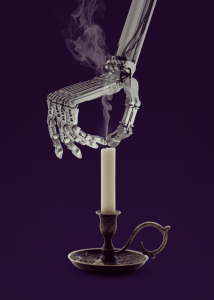 Three years ago
Three years ago Chimpanzees are among human beings’
Chimpanzees are among human beings’  The day after a
The day after a  Skye Cleary and Massimo Pigliucci in Aeon:
Skye Cleary and Massimo Pigliucci in Aeon: Terence Renaud reviews Gareth Stedman-Jones’s new book in H-Net:
Terence Renaud reviews Gareth Stedman-Jones’s new book in H-Net: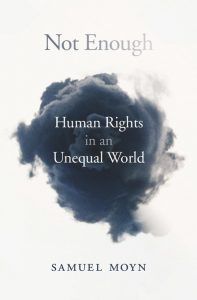 Nils Gilman in the LA Review of Books:
Nils Gilman in the LA Review of Books: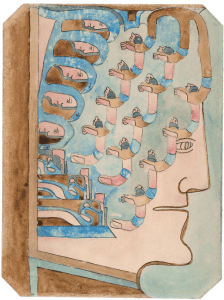 Hearing voices is, it turns out, surprisingly common. In 1894, a team led by Henry Sidgwick, a philosopher at the University of Cambridge, published the Census of Hallucinations, which surveyed 17,000 people in the United Kingdom and found that around 10 percent of them reported having seen, heard, or felt something “which impression, so far as you can discover, was not due to any external physical cause.” Many more recent studies have supported that observation. In 1983, two psychologists, Thomas Posey and Mary Losch, modified Sidgwick’s basic question and found that the rate skyrocketed to 70 percent when participants were given the opportunity to say that they had heard a voice but decided that it wasn’t real. And as many as 80 percent of people who have lost a loved one report hearing, seeing, or feeling them in the months after their death.
Hearing voices is, it turns out, surprisingly common. In 1894, a team led by Henry Sidgwick, a philosopher at the University of Cambridge, published the Census of Hallucinations, which surveyed 17,000 people in the United Kingdom and found that around 10 percent of them reported having seen, heard, or felt something “which impression, so far as you can discover, was not due to any external physical cause.” Many more recent studies have supported that observation. In 1983, two psychologists, Thomas Posey and Mary Losch, modified Sidgwick’s basic question and found that the rate skyrocketed to 70 percent when participants were given the opportunity to say that they had heard a voice but decided that it wasn’t real. And as many as 80 percent of people who have lost a loved one report hearing, seeing, or feeling them in the months after their death. Privately, many climate and energy experts admit that the fastest, easiest, and cheapest way to decarbonize energy supplies is with nuclear power.
Privately, many climate and energy experts admit that the fastest, easiest, and cheapest way to decarbonize energy supplies is with nuclear power.